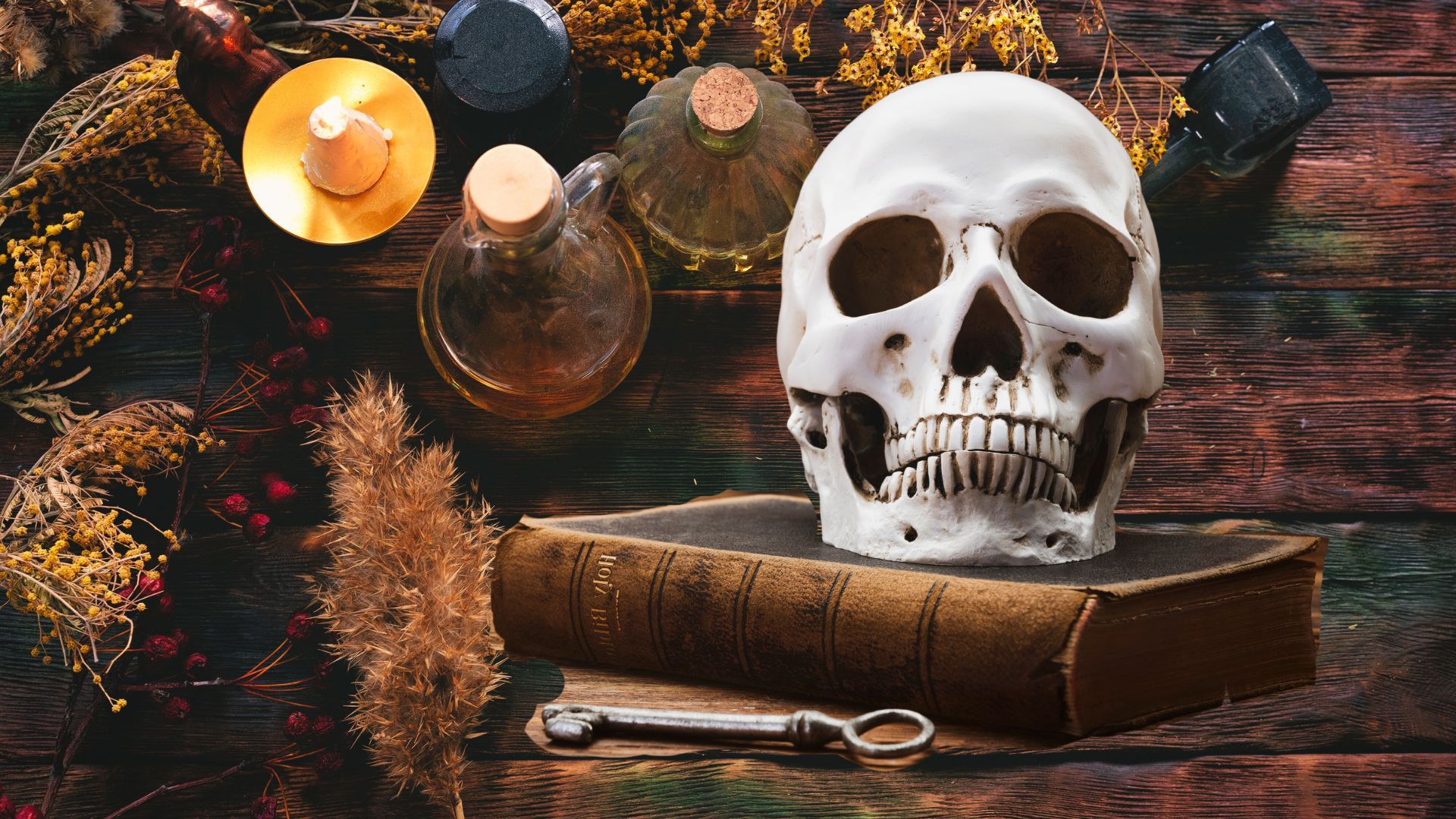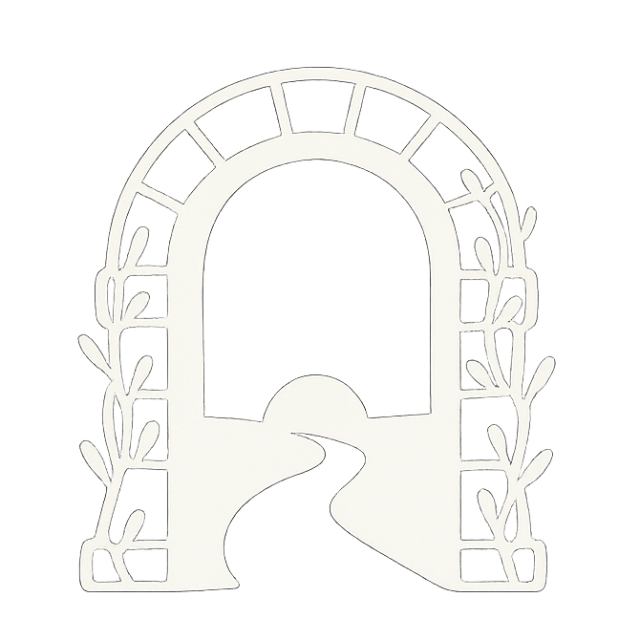The Immortality Key: Round 2 Revelations

Nerd Alert: Mystical Musings on Ancient Pharmacology
With a mix of international adventure, weird science, and cryptic studies—such as archaeochemistry, geomythology, and ethnobotany—The Immortality Key takes readers on a journey through mystical decoding, secure library vaults, the mycology of psychoactive sacraments, and a quest to solve one of humanity’s greatest mysteries. All while navigating political protests and a global pandemic!
Brian Muraresku, the book’s author, is essentially a real-life blend of Indiana Jones, a Dan Brown protagonist, and Sherlock Holmes. (As a side note, if another such real-life blend of these characters exists out there and happens to be single… please know that I, too, am currently single and would love to meet you. Ahem. Now back to the book…)
Why Listen Instead of Read?
I’ve listened to this book twice, and yes, I highly recommend listening rather than reading because:
- It’s long, and let’s be real—we all have things to do.
- It’s read by the author, and he nails it.
- The etymology and pronunciation of dying languages are best left to pros—of which Brian is one of the few living.
- You get to hear his passion, which is contagious.
I loved The Immortality Key the first time. So much so that a year and a half later, I was still raving about it, and nerding out with the founder of the Central Oregon Psychedelic Society, which led to us launching the COPS Book Club—with our first discussion on, you guessed it, The Immortality Key.
I remembered it as deeply researched, so when my turn finally came for a waitlisted copy from the library, I figured a refresher was in order before our book club gathering.
I thought it was good the first time. The second time? MIND. BLOWN.
Why the Second Listen Hit Harder:
1. Psychedelics Change Everything
Before my first listen, I had dabbled with plant medicines in nature—beautiful, but nothing like a deep dive into the psyche. To "die before you die" (a phrase central to this book) changes everything. After experiencing psychedelic therapy firsthand, I better grasped the weight of what Muraresku was uncovering.
Since my first listen, I had also immersed myself in Jungian psychology and archetypal studies in a personal quest to interpret and integrate rich messages from my psyche—through dreams and psychedelic journeys alike. Given that mythology and archetypes are core to the Eleusinian Mysteries, I came to appreciate the book’s significance on a whole new level. Myth isn’t just storytelling—it’s encoded wisdom about collective consciousness and our connection to something greater.
With psychedelic therapy also came deeper inner work. I stumbled upon additional books and podcasts exploring the Eleusinian Mysteries—Persephone Rising, Existential Kink, Third Eye Drops. The more I explored mystical traditions and personal development, the more I saw The Immortality Key as part of a lineage of soulful seekers.
2. My Pilgrimage to Ireland
In November, I took myself on a 40th birthday trip to my ancestral homeland—Ireland. I visited as many Celtic sites as possible, braving off-season hours and storms. I left the country with two major downloads, which greatly enhanced my second experience with The Immortality Key:
- A Web of Ancient Civilizations
At the ancient Newgrange site, our guide told us they had recently discovered a small bone indicating the builders were more genetically similar to Turkish people. Turkish?!
Why would that be?!
I’d already been on a Göbekli Tepe kick. Someone had recommended Jimmy Corsetti’s YouTube videos on Göbekli Tepe’s mysterious connection to ancient rituals (and, oddly, the WEF’s interest in it—cue conspiracy theories). I had also listened to Graham Hancock’s Magicians of the Gods and watched the incredible Turkish Netflix series The Gift, both of which deepened my curiosity about this enigmatic prehistoric site.
The more Celtic sites I visited, the more connections I found to other ancient traditions—from Polynesia to Peru. So when Muraresku repeatedly referenced Göbekli Tepe while pitching the Pagan Continuity Theory? I was sold.
- The Lost/Crushed Feminine
Many of the Celtic sites I explored were believed to be dedicated to the Triple Goddess, Brigid, the Earth Goddess Ériu (for whom Ireland is named), or ancient queens like Maeve—not to mention the shameless Sheela-na-gigs and frolicking fairies everywhere. I even discovered connections to Egyptian princesses and found that the Fellowship of Isis is alive in Ireland.
On my last night, something prodded me to look up Mary Magdalene in Ireland.
What I found? The absolutely horrific true story of the Magdalene Laundries—forced labor institutions that enslaved "indecent" women well into the 1990s. Yes, the 1990s- named after the church’s corrupt story about Mary Magdalene.
I was enraged.
This country (and, truly, much of the world) had gone from worshiping the Earth and her priestesses to imprisoning any woman accused of "wild" behavior. The Immortality Key provides damning academic research on just how insidiously and successfully the Church crushed the feminine and abolished the gnostic legacy of Mary Magdalene.
It makes me want to vomit, but it’s a truth that needs to be told.
The sacred feminine needs to rise again—and this book is truly a key.
Mind-Blowing Themes You Might Miss
This book is academically dense—so dense that some of its most profound implications could easily be overlooked. Here are some key points to keep an ear out for:
1. The Scholar as Hero
Muraresku isn’t just a researcher; he’s an initiatory figure himself. This book is a testament to his devotion—proving himself to the powers that be on his heroic quest to solve an ancient mystery. He masters dying languages, earns the trust of secretive scholars, navigates Vatican bureaucracy… the list goes on. The depth of his commitment blew me away the second time.
2. Rites of Passage Built Civilization
The Eleusinian Mysteries weren’t just a fringe cult—they were the glue holding together spiritual, social, and agricultural life. Muraresku suggests initiation rites may have been the real reason for the agricultural revolution and the dawn of city life. How did I miss the massive implications of that theory the first time?! It makes me want to go back to all the middle and high school students I taught about the Neolithic Period and the rise of civilization and introduce them to this mind-blowing suggestion!
3. Women & Beer: Keepers of the Sacred Elixir
One of the book’s most fascinating revelations: women—particularly beer-brewing women—were likely the original facilitators of the sacred sacrament. The brewing of psychoactive potions was often the work of priestesses, witches, and herbalists.
It makes me appreciate every craft beer brewer I know—cheers to keeping the mysteries alive!
4. Christianity Was a Mystery Religion
This is the biggest mic drop moment. Muraresku makes a compelling case that early Christianity was deeply tied to mystery religions—possibly preserving aspects of the Eleusinian tradition. The Eucharist (Holy Communion) may have once been a psychoactive sacrament before the Church stripped it of its potency. This reframes everything we think we know about Western spirituality.
In fact, the Greek word agape—which I have tattooed on my left wrist from my churchie days, where I knew it as 'Christ’s self-sacrificing love'—also happens to be the very phrase that, as Muraresku discovered, the Greeks would proclaim as they drank their holy psychedelic concoction. Agape was also a term used for indigenous Oaxacan mushroom ceremonies—in the very heart of my favorite holiday, Día de los Muertos. And in light of the sacred desire to 'die before you die,' I now see the celebratory skulls and graveyard vigils of The Day of the Dead in a whole new way. Maybe a new book idea for you, Brian…🤔
Final Thoughts
If you’re a huge nerd like me—fascinated by the intersection of psychedelics, ancient religion, and hidden history—The Immortality Key is a must-read (or rather, must-listen).
And if you happen to be an unmarried, Indiana-Jones-esque scholar obsessed with ancient mysteries… let’s talk.
After all, sacred rites, lost knowledge, and fermented elixirs are better when shared. 😉
